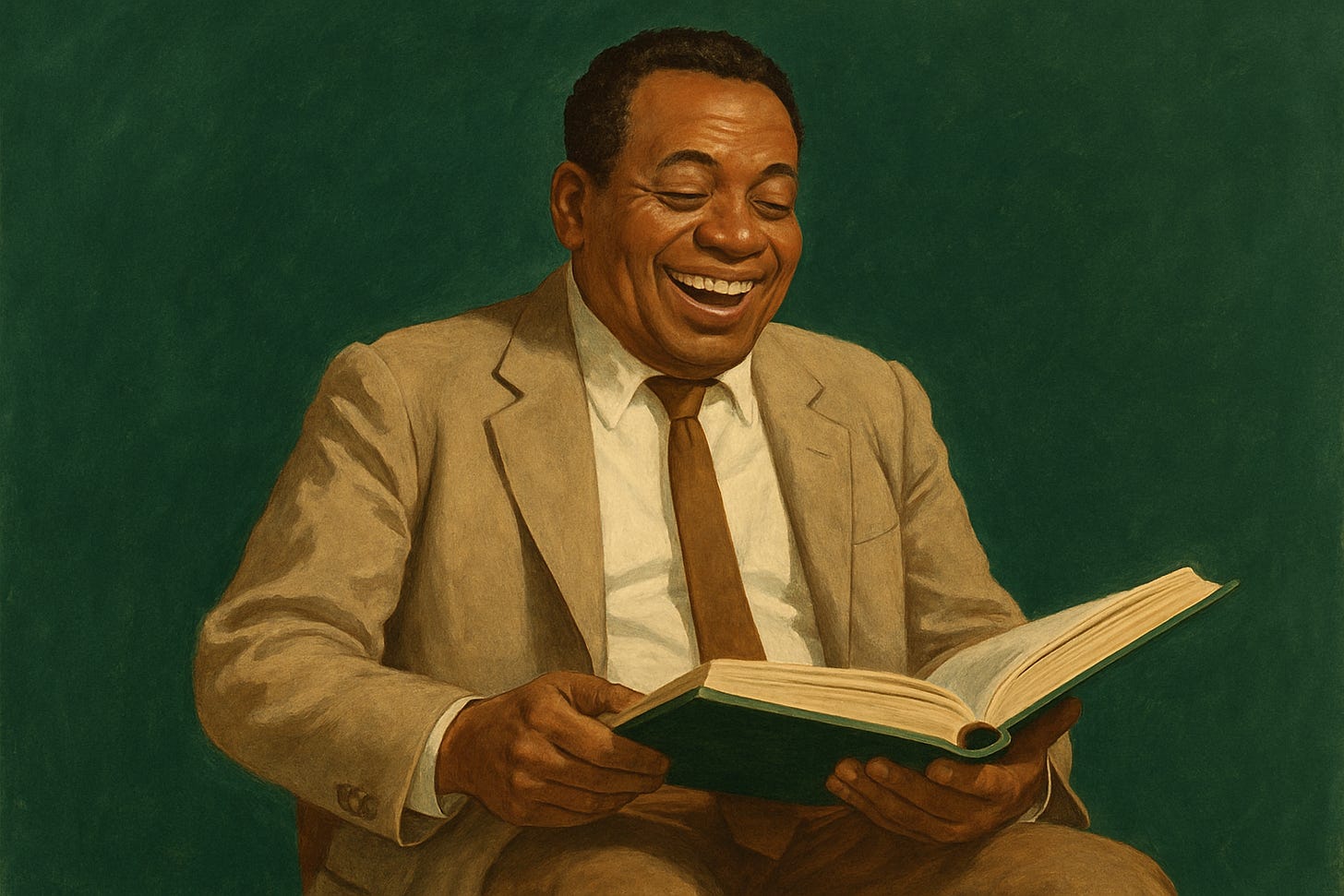Joy doesn’t fight for your attention.
You don't need to respond to every ping.
We live in a culture that has made exhaustion a badge of honour. That glorifies the grind and measures worth in output. We’re told to do more, scroll more, respond faster, keep up, keep going, and above all, stay busy.
Rest becomes a luxury we can’t afford. Slowness becomes guilt. Silence becomes something to fill.
And joy? It gets pushed to the margins of our lives.
It becomes something we chase instead of something we cultivate.
Something we earn instead of something we allow. We defer it with phrases that have become mantras: “I’ll enjoy my life when I finish this project, when I get the promotion. When I finally feel better. When I’m not so behind on everything.”
But joy doesn’t wait on your accomplishments. It doesn’t care about your timeline or your to-do list. It lives in the middle of your ordinary Tuesday, not at the end of your five-year plan.
It lives in small, unremarkable moments that we’ve been trained to overlook. The first sip of coffee when the house is still quiet. A song that catches you off-guard, and suddenly you’re seventeen again. The way afternoon light spills across your kitchen floor in golden rectangles.
The laugh that surprises you in the middle of a difficult conversation. The softness in someone’s eyes when they really see you, not the version of you that’s running late and slightly frazzled.
These aren’t distractions from the important work of living. They are the critical work of living.
They’re reminders that you are allowed to feel joy without having to earn it first. That happiness isn’t proof you’ve “arrived” somewhere worthy, but evidence that you’re already here, already enough, already home in your own skin.
Those moments of unexpected lightness aren’t detours from your purpose; they are your purpose, speaking in a language quieter than ambition.
But to hear them, you have to slow down. You have to protect the parts of your day that make you feel human rather than productive. You have to guard your attention as if it were sacred, because it is.
You don’t need to respond to every ping. You don’t need to be available to everyone all the time. You don’t need to spend your entire day in reactive mode, bouncing from one demand to the next like a pinball.
Joy asks you to live with intention, not reactivity. It asks you to notice what’s actually happening, rather than what should be happening. To create moments that aren’t about outcome but about presence.
“It is not joy that makes us grateful,” said David Steindl-Rast, “it is gratitude that makes us joyful.”
Gratitude doesn’t require perfect conditions. It doesn’t need your life to be Instagram-worthy or your problems to be solved. It just involves presence, the radical act of looking around and saying, “Even here, something is good.”
Even in this season of uncertainty. Even in this hour of bone-deep exhaustion. Even in this imperfect version of yourself, you’re still learning to love.
Protecting joy doesn’t mean ignoring pain, bypassing grief, or pretending everything is fine when it isn’t. It means holding space for all of it, the beautiful and the broken, the celebration and the sorrow. It means letting joy coexist with the hard things, because that’s where it’s needed most.
Joy doesn’t need perfect conditions to bloom. It just needs your attention and the faith that it’s worth protecting.
So make time for the small rebellions against a culture that wants to consume your wonder. Play music while you cook. Take the long way home sometimes. Say the thing you’ve been holding in your chest. Wear the colour that makes you feel alive. Let yourself laugh too loud at something ridiculous.
Cry when the feeling hits you and don’t apologise for it. Light the good candle on a random Thursday. Open the window and let the air change everything. Say “no” when you mean it. Say “yes” when it scares you in the right way.
You don’t need permission to protect your joy. You don’t need to justify rest or defend moments of simple pleasure. You need to believe it’s worth protecting.
Because it is. Because you are.
Joy isn’t a reward you earn at the end of suffering. It’s a practice you can choose every day, as many times as you remember. And you deserve to practice it not someday, but today. Right here, right now, in the middle of your beautifully imperfect, gloriously ordinary life.
Thank you for reading. Your time and attention mean everything. This essay is free, but you can always buy me coffee or visit my shop to support my work. For more thoughts and short notes, please find me on Instagram.



